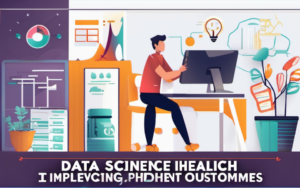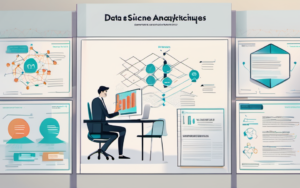In today’s data-driven world, where algorithms shape our experiences and decisions, data ethics has become a critical concern. As data scientists, we wield immense power to influence outcomes and impact lives, making it imperative to understand and uphold ethical principles in all our endeavors. Let’s delve into the significance of data ethics and explore its practical implications for data professionals.
The Importance of Data Ethics
Introduction
Data ethics encompasses the principles and guidelines that govern the responsible collection, analysis, and use of data. It ensures that data is handled ethically and fairly, promoting trust, transparency, and accountability.
Why Data Ethics Matters
Building Trust and Transparency
Ethical data practices build trust between data scientists and the public. When individuals understand how their data is being used and are confident that it is being handled responsibly, they are more likely to engage with data-driven services and initiatives. Transparency is key to building this trust, ensuring that data collection, analysis, and decision-making processes are open and accessible.
Preventing Bias and Discrimination
Data reflects the biases present in society, which can lead to unfair outcomes when used to make decisions. For example, an algorithm trained on historical data might perpetuate existing biases, leading to discrimination against certain groups. Data ethics emphasizes the importance of identifying and mitigating bias in data and algorithms to ensure fair and equitable outcomes.
Protecting Privacy and Security
Data ethics plays a crucial role in safeguarding individual privacy and security. It involves implementing measures to protect sensitive data from unauthorized access, use, or disclosure. Principles like data minimization, anonymization, and encryption are crucial for ensuring data privacy and security.
Key Principles of Data Ethics
Fairness and Non-discrimination
Algorithms and data-driven decisions should be fair and unbiased, avoiding discrimination against individuals or groups based on factors like race, gender, or socioeconomic status.
Privacy and Confidentiality
Data should be collected and used with respect for individual privacy. Individuals should be informed about how their data is being used and have control over their information.
Transparency and Accountability
Data collection, analysis, and decision-making processes should be transparent and accountable. This ensures that individuals can understand how data is being used and who is responsible for its use.
Beneficence and Non-maleficence
Data should be used for good and should not cause harm to individuals or society. Data scientists have a responsibility to consider the potential risks and benefits of their work and to prioritize ethical considerations.
Data Ownership and Control
Individuals should have ownership and control over their data. They should have the right to access, modify, and delete their data.
Practical Implications for Data Scientists
Data Collection and Preprocessing
Informed Consent and Data Anonymization
Data scientists must ensure that data is collected with informed consent from individuals. This involves providing clear information about how data will be used and obtaining explicit permission before collecting and using it. Anonymization techniques can be employed to protect individual privacy by removing identifying information from data sets.
Addressing Bias in Data
Identifying and mitigating bias in data is crucial to ensure fairness and equity in data-driven decisions. This involves understanding potential sources of bias in data, using techniques to detect and correct bias, and evaluating the impact of bias on model outcomes.
Model Development and Deployment
Explainable AI and Model Transparency
Explainable AI (XAI) is a field focused on making machine learning models more transparent and understandable. XAI techniques can help data scientists interpret model predictions and understand how they are made, increasing trust and accountability.
Ethical Considerations in Model Evaluation
Data scientists must consider ethical implications when evaluating model performance. It’s important to assess not only the accuracy of the model but also its fairness, transparency, and potential for harm.
Data Governance and Compliance
Data Security and Privacy Regulations
Data scientists must be aware of and comply with data security and privacy regulations, such as the General Data Protection Regulation (GDPR) and the California Consumer Privacy Act (CCPA). These regulations establish standards for data collection, storage, processing, and sharing, ensuring data privacy and security.
Establishing Ethical Guidelines and Policies
Organizations should establish ethical guidelines and policies for data science practices. These guidelines should outline principles for data collection, analysis, and use, ensuring that all data professionals adhere to ethical standards.
The Future of Data Ethics
Data ethics is an evolving field, with new challenges and opportunities emerging constantly. The rise of artificial intelligence (AI) and other emerging technologies necessitates ongoing discussions and advancements in data ethics principles and practices.
Call to Action
Data scientists have a responsibility to champion data ethics and promote its importance in their work. By adhering to ethical principles, advocating for responsible data practices, and staying informed about emerging ethical issues, we can ensure that data is used for good and contributes to a fairer and more equitable society.




